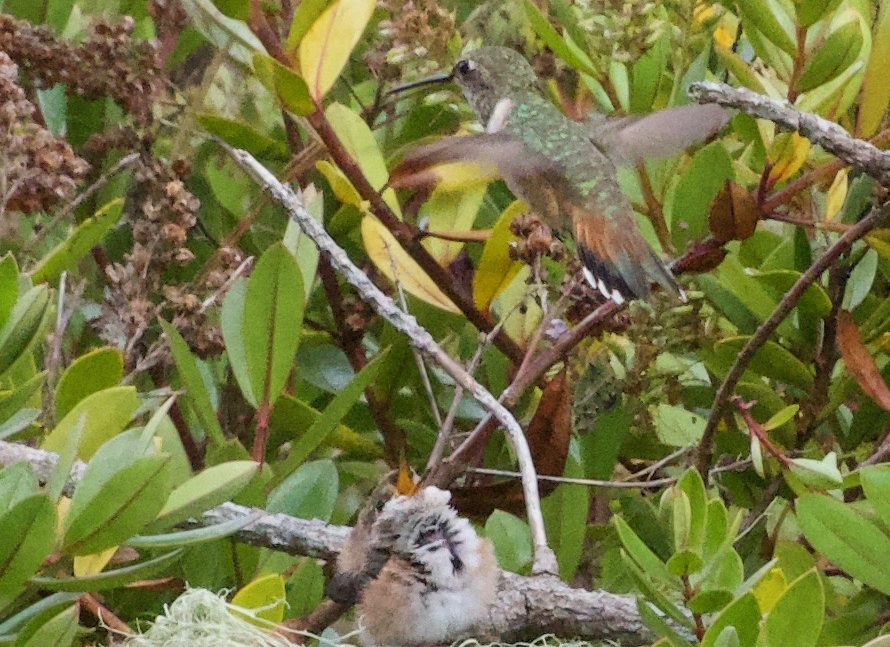
Curiosity is the hallmark of childhood. Every day, for the young of any species, is a voyage of discovery. A child outside has no limits but her own between herself and the whole wide world. A young kid turns over rocks, follows a trail that leads under bushes. A boy finds on the ground a tiny buzzing bird and picks the bird up and carries the bird home in his jacket pocket.
Each year during Spring and Summer at Humboldt Wildlife Care Center we admit more than a few young fledgling birds who were picked up by kids and brought to the classroom or brought home. If these birds aren’t injured and we can learn where the kids found them, we try to get them home, back to their parents, and their interrupted lives.
At the end of July, a young Allen’s Hummingbird (Selasphorus sasin), just learning to fly, was found by some children near the school in Samoa, on the peninsula across Humboldt Bay from Eureka. The tiny bird was in good health, without injury. After some careful questioning of the kids’ mother, we had an idea where the young hummingbird was found by the young human. So we set out in search of the bird’s parents.
 Our admission examination found no injuries or problems – just a healthy fledgling bird who happened to be seen by a curious young kid while vulnerable during first flight attempts.
Our admission examination found no injuries or problems – just a healthy fledgling bird who happened to be seen by a curious young kid while vulnerable during first flight attempts.
 The dune forest where the young bird had been found.
The dune forest where the young bird had been found.
 Adult hummingbirds were seen immediately in the area.
Adult hummingbirds were seen immediately in the area.

 We placed the fledgling on a nearby branch
We placed the fledgling on a nearby branch

 Our reunite team backed up to allow the adults to feel more comfortable in approaching the young bird.
Our reunite team backed up to allow the adults to feel more comfortable in approaching the young bird.
 In moments an adult female came down the fledgling and began to offer food.
In moments an adult female came down the fledgling and began to offer food.
One of the great joys of wildlife rehabilitation is the chance to reunite families. Too often we aren’t able to get young back with their parents. In those cases we have good practices that help us raise healthy juveniles for release, but we don’t kid ourselves. NO one is a better hummingbird parent than a hummingbird’s parent. Making wild families whole again is as important a component of our work as the care we provide and the injuries we prevent through consultation and education.
What follows is a series of photos of the adults repeated trips to feed and care for the young bird that they nearly lost.











Caring for injured wildlife, helping resolve conflicts between human concerns and the needs of wild animals, reuniting wild families: each of these are a critical part of the work we do – work your support makes possible. So far, 2018 has been the busiest year HWCC has ever had in its 39 year history. We need your support now more than ever. Please, help us help our wild neighbors.


